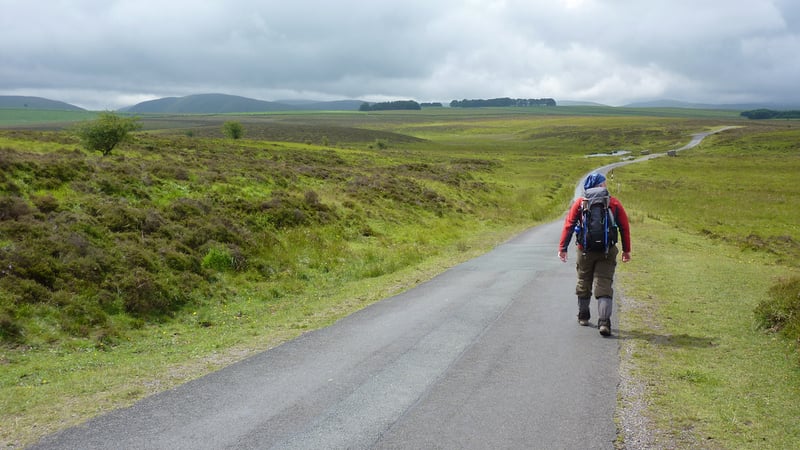Even though I have been away from law enforcement for nearly six years now, there are still traits from the job that remain with me. Some of the senses that were useful (and necessary) to me back then are declining but I am sure that they are still far more heightened then the average person.
On a recent Sunday evening at Mass, I noticed that one of our parishioners had brought a visitor. From the start, I noticed that this young man was possibly homeless. His mannerisms indicated to me that he probably had some mental-health issues. This is where the latent cop side of me came into action. Would this young man cause any sort of disturbance? If he did, what could I do to calm the situation if the disturbance got to that point and my help needed? I could not help this train of thought. I was trying not to be judgmental but my training and experience surfaced. That is probably one of the “hazards” of being in law enforcement for any length of time.
Here I was, distracted by the presence of a person who I knew nothing about. It was his appearance and my experience of others in his same situation that made me leery of him. It was not him per se that concerned me, but the potential of what could happen if something upset him. My inner being was screaming to be empathetic to him, to see Jesus in him, and, if something did happen, to take the necessary actions with calm compassion and love and at the same time make sure everyone was safe.
It just so happened that the Gospel that night was on the Beatitudes. The Beatitudes are those characteristics that each of us possesses to help build the Kingdom of God. Individually we could be a peacemaker, someone who is empathetic to others, or one who suffers for Jesus’ sake. But, in the end, all of these traits in the Beatitudes boil-down to Love, don’t they? God calls us to love one another.
[tweet "Living the Beatitudes at Mass: an opportunity to put our Christianity to work."]
One expression of love that we show to one another at Mass is the Sign of Peace. That is when we turn to our neighbor, usually someone we do not know, we look them in the eye, we extend our hand in friendship, and hopefully with a sincere heart we say to them, “Peace be with you.” This is the way it is supposed to be. However, this was not the case the night in question.
At the Sign of Peace, our visitor was participating in this act of fellowship. I only caught the last part but I saw one member of our congregation refuse to shake his hand (even though his wife had.) Maybe he had a good reason not to, but my first impression was that he refused because of what he perceived of our visitor, some bias. I saw the young man turn-away somewhat bewildered, shaking his head in disbelief. My wife saw the same thing and we immediately felt bad for him. Then I became upset.
Here we were at Mass. We just heard the Beatitudes and we had just listened to St. Paul saying “those who count for nothing” would be the ones to bring down those who are “something.” We had a stranger among us; someone many would consider the least of us, one of “those who count for nothing.” Yet, if what I believe why that man refused to shake our visitor’s hand is true, he, me, and by extension, others in the congregation who may have viewed the young man with disdain or mistrust, totally missed the boat on what it means to be Christian. Here was an opportunity to put our Christianity to work, to put aside our biases and prejudices, be welcoming to our stranger, and to show him that our Catholic community is one of love.
Not all is lost in this story, though. During Communion, it appeared our visitor wanted to participate. It looked like the person who brought him to Mass was explaining to him that he should not or could not. The young man appeared to become agitated. It was then that a woman came up to him, held his hand, and said a few words to him. This seemed to calm him down and he sat down. (The social worker side of my wife kept wanting to go over and hug him!)
In the end, our guest was very respectful. He caused no problems for anyone.
There were so many lessons on so many levels that night. There were opportunities to live our Christian life, some lost and some gained. For those of us who cannot put our Christianity to work, even in church, then when will we employ it? For those of us who saw the opportunity to act in a Christian manner, God bless you, because you taught us what it means to reach out and love our neighbor; the very essence of being a Christian.
Copyright 2017, Michael T Carrillo
About the Author
Michael T Carrillo
Michael Carrillo is a retired police officer from a large California metropolitan police department. He is married to Vicki and they have five adult children between them. He is an unabashed fan of Jesuit education, though he regrets not obtaining one himself. Day hikes and walks give him opportunities and inspirations to look for and find God.



.png?width=1806&height=731&name=CatholicMom_hcfm_logo1_pos_871c_2728c%20(002).png)
Comments